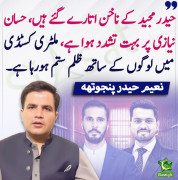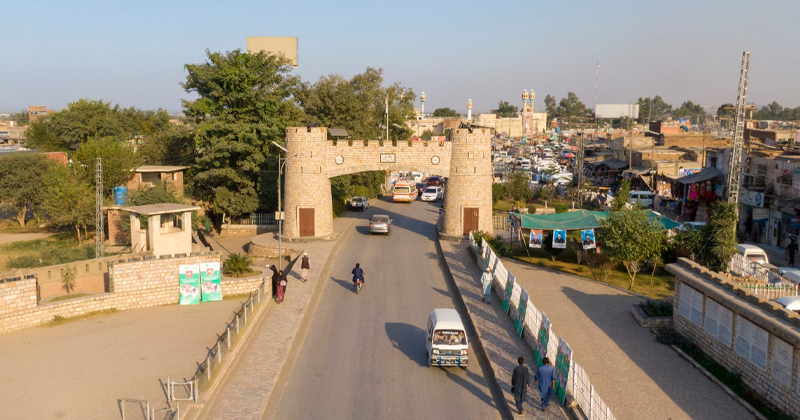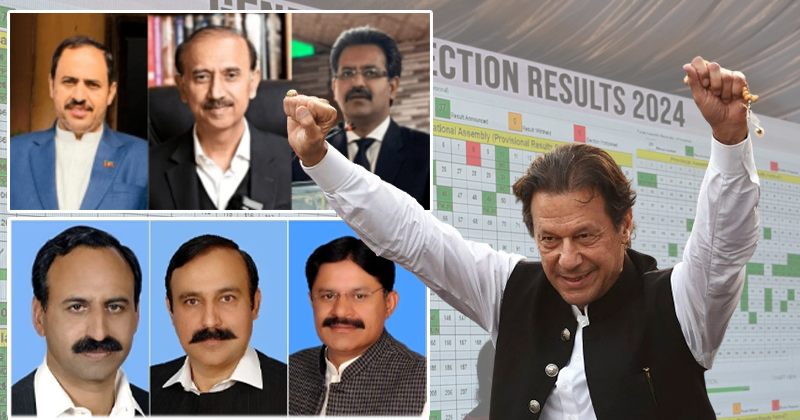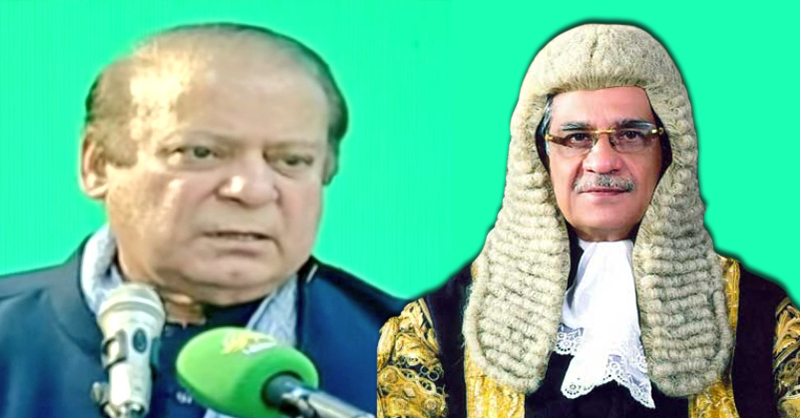Abraham Lincoln (1809-1865)
Abraham Lincoln was the 16th President of the United States. He was one of the greatest leaders in the world. As President during the American Civil War, Abe preserved the Union and abolished slavery.
Abe was born on February 12, 1809, in a log cabin in Kentucky. He was a postmaster, lawyer, and President of the United States.
A Nation Divided
In the mid-1800's, the United States had been a country for less than 90 years and was facing difficult times. The issue of slavery was dividing the nation. The Southern states were in favor of slavery, and the Northern states wanted to abolish or end slavery.
The Lincoln-Douglas Debates
In 1858, Abe ran for the U.S. Senate. He wanted to end slavery. His opponent for the Senate was Stephen A. Douglas. The two candidates engaged in seven debates during the election. These debates are known as the Lincoln-Douglas Debates. Abe lost the election, but gained a national reputation.
Abe Becomes President
In November 1860, Abe was elected President of the United States. He was the first Republican President.
At that time, there were 34 states in the Union. The Southern states thought Abe would end slavery, and they began to secede or withdraw from the Union. After Abe was sworn in as President in March 1861, 11 Southern states had seceded. They formed the Confederate States of America.
The American Civil War Begins
On April 12, 1861, Confederate forces fired upon Fort Sumter in Charleston, South Carolina. This began the American Civil War. The Northern and Southern states fought each other for four years. It was a costly war where brothers fought against brothers and friends fought against friends.
During the Civil War, Abe issued the Emancipation Proclamation and delivered the Gettysburg Address. In the end, the North won the war. Abe succeeded in preserving the Union and abolishing slavery.
The Emancipation Proclamation
Abe was opposed to slavery. In 1862, Abe issued a Preliminary Emancipation Proclamation. Emancipation means to free slaves from bondage. Proclamation means an announcement. Therefore, emancipation proclamation means an announcement to free the slaves from bondage.
Abe issued and signed the Emancipation Proclamation on January 1, 1863. It freed about 4 million African-Americans held as slaves in the Southern states. It also changed the Civil War from a war for preservation (keeping the Union together) into a war of liberation (freeing the slaves).
The Gettysburg Address
The Battle of Gettysburg was fought from July 1 to 3, 1863, in Gettysburg, Pennsylvania. It was the bloodiest battle of the Civil War. After the battle, the United States established a National Cemetery to honor the brave men who had fought and died at Gettysburg. Abe was asked to say "a few appropriate remarks" at the dedication ceremony to be held on November 19, 1863.
On November 18, 1863, Abe took a train from Washington, D.C. to Gettysburg. The station where he arrived is now called the Gettysburg Lincoln Railroad Station.
On November 19, 1863, Abe delivered his "few appropriate remarks" to the 15,000 people attending the dedication ceremony. These remarks became known as the Gettysburg Address.
In the Gettysburg Address, Abe spoke about the purpose of the Civil War. He stated the war will prove the government of the United States could work, and he reemphasized the country's commitment to democracy.
Abe began the Gettysburg Address with the famous words,
Fourscore and seven years ago our fathers brought forth on this continent a new nation, conceived in liberty, and dedicated to the proposition that all men are created equal.
Did you know a score means 20 years and fourscore means 80 years? So fourscore and seven years means 87 years. 87 years before 1863 was the year 1776, which was the year the Founding Fathers signed the Declaration of Independence. The Declaration of Independence declared the colonies' independent from Britain which started the United States of America.
Abe then stated,
The world will little note nor long remember what we say here, but it can never forget what they did here.
Abe was half right. He was right in that we have not forgotten what the soldiers did at Gettysburg. But he was wrong when he said the world would forget what Abe said at Gettysburg. After all, we are reading about it right now! Although Abe gave the speech in less than two minutes, the speech has become Abe's most famous speech and is carved into the Lincoln Memorial in Washington, D.C.
Abe ended the Gettysburg Address by stating,
that this nation, under God, shall have a new birth of freedom; and that government of the people, by the people, for the people, shall not perish from the earth.
This statement refers to the type of free, self-government which exists in the United States. In 1863, other nations were ruled by kings or queens. The United States experimented with self government in 1776, and this government lasted 87 years. Abe was convinced it would continue after the civil war came to an end. The Union was divided for the moment, but it would survive and become a stronger Union in the end.
American Civil War Ends
On April 9, 1865, General Robert E. Lee surrender his Confederate Army to Ulysses S. Grant in Appomattox Court House, Virginia. This date marks the end of the American Civil War.
Ford's Theater
Five days later, on April 14, 1865, Abe and his wife, Mary Todd, attended the play, Our American Cousin, at Ford's Theater in Washington, D.C. It was Good Friday. During the performance, John Wilkes Booth shot Abe in the head. Abe was carried to the Peterson house across the street from the theater.
Abe died the next morning, on April 15, at 7:00 a.m. He was 56 years old.
Abe was the first President of the United States to be assassinated. His funeral was held at the White House, and his body lay in state in the U.S. Capitol. More than 25,000 people came to say good-bye to their President.
Abe's body was taken by train from Washington, D.C., to Springfield, Illinois. The train was draped in black to mourn the loss of the country's leader. Millions of people stood by the railroad tracks to say their last good-byes to Abe. On May 4, 1865, Abe was buried in Oak Ridge Cemetery in Springfield, Illinois.
Abraham Lincoln was the 16th President of the United States. He was one of the greatest leaders in the world. As President during the American Civil War, Abe preserved the Union and abolished slavery.
Abe was born on February 12, 1809, in a log cabin in Kentucky. He was a postmaster, lawyer, and President of the United States.
A Nation Divided
In the mid-1800's, the United States had been a country for less than 90 years and was facing difficult times. The issue of slavery was dividing the nation. The Southern states were in favor of slavery, and the Northern states wanted to abolish or end slavery.
The Lincoln-Douglas Debates
In 1858, Abe ran for the U.S. Senate. He wanted to end slavery. His opponent for the Senate was Stephen A. Douglas. The two candidates engaged in seven debates during the election. These debates are known as the Lincoln-Douglas Debates. Abe lost the election, but gained a national reputation.
Abe Becomes President
In November 1860, Abe was elected President of the United States. He was the first Republican President.
At that time, there were 34 states in the Union. The Southern states thought Abe would end slavery, and they began to secede or withdraw from the Union. After Abe was sworn in as President in March 1861, 11 Southern states had seceded. They formed the Confederate States of America.
The American Civil War Begins
On April 12, 1861, Confederate forces fired upon Fort Sumter in Charleston, South Carolina. This began the American Civil War. The Northern and Southern states fought each other for four years. It was a costly war where brothers fought against brothers and friends fought against friends.
During the Civil War, Abe issued the Emancipation Proclamation and delivered the Gettysburg Address. In the end, the North won the war. Abe succeeded in preserving the Union and abolishing slavery.
The Emancipation Proclamation
Abe was opposed to slavery. In 1862, Abe issued a Preliminary Emancipation Proclamation. Emancipation means to free slaves from bondage. Proclamation means an announcement. Therefore, emancipation proclamation means an announcement to free the slaves from bondage.
Abe issued and signed the Emancipation Proclamation on January 1, 1863. It freed about 4 million African-Americans held as slaves in the Southern states. It also changed the Civil War from a war for preservation (keeping the Union together) into a war of liberation (freeing the slaves).
The Gettysburg Address
The Battle of Gettysburg was fought from July 1 to 3, 1863, in Gettysburg, Pennsylvania. It was the bloodiest battle of the Civil War. After the battle, the United States established a National Cemetery to honor the brave men who had fought and died at Gettysburg. Abe was asked to say "a few appropriate remarks" at the dedication ceremony to be held on November 19, 1863.
On November 18, 1863, Abe took a train from Washington, D.C. to Gettysburg. The station where he arrived is now called the Gettysburg Lincoln Railroad Station.
On November 19, 1863, Abe delivered his "few appropriate remarks" to the 15,000 people attending the dedication ceremony. These remarks became known as the Gettysburg Address.
In the Gettysburg Address, Abe spoke about the purpose of the Civil War. He stated the war will prove the government of the United States could work, and he reemphasized the country's commitment to democracy.
Abe began the Gettysburg Address with the famous words,
Fourscore and seven years ago our fathers brought forth on this continent a new nation, conceived in liberty, and dedicated to the proposition that all men are created equal.
Did you know a score means 20 years and fourscore means 80 years? So fourscore and seven years means 87 years. 87 years before 1863 was the year 1776, which was the year the Founding Fathers signed the Declaration of Independence. The Declaration of Independence declared the colonies' independent from Britain which started the United States of America.
Abe then stated,
The world will little note nor long remember what we say here, but it can never forget what they did here.
Abe was half right. He was right in that we have not forgotten what the soldiers did at Gettysburg. But he was wrong when he said the world would forget what Abe said at Gettysburg. After all, we are reading about it right now! Although Abe gave the speech in less than two minutes, the speech has become Abe's most famous speech and is carved into the Lincoln Memorial in Washington, D.C.
Abe ended the Gettysburg Address by stating,
that this nation, under God, shall have a new birth of freedom; and that government of the people, by the people, for the people, shall not perish from the earth.
This statement refers to the type of free, self-government which exists in the United States. In 1863, other nations were ruled by kings or queens. The United States experimented with self government in 1776, and this government lasted 87 years. Abe was convinced it would continue after the civil war came to an end. The Union was divided for the moment, but it would survive and become a stronger Union in the end.
American Civil War Ends
On April 9, 1865, General Robert E. Lee surrender his Confederate Army to Ulysses S. Grant in Appomattox Court House, Virginia. This date marks the end of the American Civil War.
Ford's Theater
Five days later, on April 14, 1865, Abe and his wife, Mary Todd, attended the play, Our American Cousin, at Ford's Theater in Washington, D.C. It was Good Friday. During the performance, John Wilkes Booth shot Abe in the head. Abe was carried to the Peterson house across the street from the theater.
Abe died the next morning, on April 15, at 7:00 a.m. He was 56 years old.
Abe was the first President of the United States to be assassinated. His funeral was held at the White House, and his body lay in state in the U.S. Capitol. More than 25,000 people came to say good-bye to their President.
Abe's body was taken by train from Washington, D.C., to Springfield, Illinois. The train was draped in black to mourn the loss of the country's leader. Millions of people stood by the railroad tracks to say their last good-byes to Abe. On May 4, 1865, Abe was buried in Oak Ridge Cemetery in Springfield, Illinois.





































